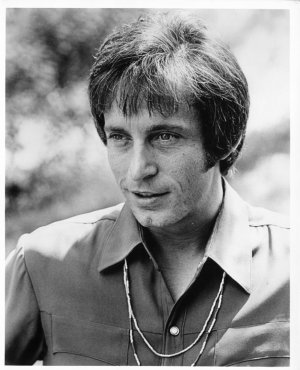Bobby Hart, songwriter behind the Monkees’ biggest hits and Boyce & Hart member, dies at 86
- Replies 1
The music world is mourning the loss of a songwriter whose work shaped an entire generation.
Bobby Hart, best known for teaming with Tommy Boyce to pen some of the Monkees’ biggest hits, has died at the age of 86.
From the group’s first No. 1 single to their iconic theme song, his melodies became part of America’s pop culture soundtrack.
For those who grew up with the Monkees on TV or the radio, Hart’s passing marks the end of an era while shining a light on the legacy he leaves behind.
If you ever found yourself humming “Last Train to Clarksville” or belting out “Hey, hey, we’re the Monkees!” you have Bobby Hart to thank. With his partner Tommy Boyce, Hart was the songwriting engine behind the Monkees’ meteoric rise.
Their partnership was the stuff of pop legend: in the mid-1960s, as television and music collided in new and exciting ways, Boyce and Hart were tapped by music impresario Don Kirshner to create hits for a made-for-TV band that would become a cultural phenomenon.
The result? A string of chart-toppers that still get toes tapping today. “Last Train to Clarksville,” the Monkees’ first No. 1 hit, was just the beginning.
The duo also wrote the group’s iconic theme song, with its unforgettable opening line: “Here we come, walkin’ down the street…” Their songs were the backbone of the Monkees’ debut album, which sold over a million copies and included six Boyce and Hart originals.
As producers, they even brought in their own band, the Candy Store Prophets, to help craft the Monkees’ signature sound.
As the group began to assert more creative control, Boyce and Hart struck out on their own, releasing albums like Test Patterns and I Wonder What She’s Doing Tonite.
They became familiar faces on TV, popping up on classic sitcoms like I Dream of Jeannie and Bewitched. And they weren’t afraid to use their platform for good—campaigning for Robert F. Kennedy in 1968 and writing L.U.V. (Let Us Vote) to support lowering the voting age.
Their songwriting prowess crossed genres and generations. The melancholy “I Wanna Be Free” became a Monkees fan favorite, while the theme to "Days of Our Lives" found a home on daytime TV.
Their songs were covered by everyone from crooner Dean Martin (“Little Lovely One”) to punk icons the Sex Pistols (“I’m Not Your Steppin’ Stone”). Talk about range!
Born Robert Luke Harshman in Phoenix, Arizona, Hart was a minister’s son with a knack for music and a drive to stand out. By high school, he’d mastered piano, guitar, and the Hammond B-3 organ and even ran his own amateur radio station.
After a stint in the Army reserves, he headed to Los Angeles, dreaming of a career as a disc jockey but soon finding his calling as a songwriter and session musician.
It was in LA that he met Tommy Boyce, a kindred spirit with a flair for melody and a magnetic personality. Together, they wrote “Come a Little Bit Closer” for Jay and the Americans—a top 10 hit—and caught the attention of Don Kirshner, who brought them into the Screen Gems songwriting stable.
Their assignment: create hits for a new TV band modeled after the Beatles. The rest, as they say, is history.
Also read: Remembering Polly Holliday: The unforgettable star behind Flo from Alice
Hart’s career didn’t fade with the flower power era. In the 1970s and ‘80s, he continued to write hits, collaborating with artists like Austin Roberts (“Over You,” an Oscar-nominated ballad for the film ‘Tender Mercies’) and Dick Eastman (“My Secret (Didja Gitit Yet?)” for New Edition).
He even contributed songs to another TV family band, the Partridge Family. Hart reunited with Monkees members Micky Dolenz and Davy Jones for tours and the album 'Dolenz, Jones, Boyce & Hart,' riding the wave of a Monkees revival in the 1980s.
His story was chronicled in the 2014 documentary The Guys Who Wrote ‘Em, and in his own memoir, Psychedelic Bubblegum, where he reflected on his journey from shy Arizona kid to pop music legend.
Also read: Ken Jennings walks off set after a shocking Jeopardy! surprise—don’t miss his reaction!
Bobby Hart’s songs are woven into the fabric of American pop culture. As Micky Dolenz wrote in the foreword to Hart’s memoir, “I always credit them not only with writing many of our biggest hits, but, as producers, being instrumental in creating the unique Monkee sound we all know and love.”
That sound—joyful, catchy, and a little bit rebellious—helped define an era and continues to inspire new generations of musicians and fans.
Hart is survived by his wife, singer Mary Ann Hart, and two children from his first marriage. His partner in rhyme, Tommy Boyce, passed away in 1994, but together, their music lives on.
Read next: A sad goodbye to Supertramp’s founding member Rick Davies, gone at 81—fans stunned as cause of death revealed

Did you grow up watching the Monkees on TV? Do you have a favorite Boyce and Hart song? Maybe you remember seeing them live, or you’ve passed their music down to your kids and grandkids.
Bobby Hart, best known for teaming with Tommy Boyce to pen some of the Monkees’ biggest hits, has died at the age of 86.
From the group’s first No. 1 single to their iconic theme song, his melodies became part of America’s pop culture soundtrack.
For those who grew up with the Monkees on TV or the radio, Hart’s passing marks the end of an era while shining a light on the legacy he leaves behind.
If you ever found yourself humming “Last Train to Clarksville” or belting out “Hey, hey, we’re the Monkees!” you have Bobby Hart to thank. With his partner Tommy Boyce, Hart was the songwriting engine behind the Monkees’ meteoric rise.
Their partnership was the stuff of pop legend: in the mid-1960s, as television and music collided in new and exciting ways, Boyce and Hart were tapped by music impresario Don Kirshner to create hits for a made-for-TV band that would become a cultural phenomenon.
The result? A string of chart-toppers that still get toes tapping today. “Last Train to Clarksville,” the Monkees’ first No. 1 hit, was just the beginning.
The duo also wrote the group’s iconic theme song, with its unforgettable opening line: “Here we come, walkin’ down the street…” Their songs were the backbone of the Monkees’ debut album, which sold over a million copies and included six Boyce and Hart originals.
As producers, they even brought in their own band, the Candy Store Prophets, to help craft the Monkees’ signature sound.
As the group began to assert more creative control, Boyce and Hart struck out on their own, releasing albums like Test Patterns and I Wonder What She’s Doing Tonite.
They became familiar faces on TV, popping up on classic sitcoms like I Dream of Jeannie and Bewitched. And they weren’t afraid to use their platform for good—campaigning for Robert F. Kennedy in 1968 and writing L.U.V. (Let Us Vote) to support lowering the voting age.
Their songwriting prowess crossed genres and generations. The melancholy “I Wanna Be Free” became a Monkees fan favorite, while the theme to "Days of Our Lives" found a home on daytime TV.
Their songs were covered by everyone from crooner Dean Martin (“Little Lovely One”) to punk icons the Sex Pistols (“I’m Not Your Steppin’ Stone”). Talk about range!
Born Robert Luke Harshman in Phoenix, Arizona, Hart was a minister’s son with a knack for music and a drive to stand out. By high school, he’d mastered piano, guitar, and the Hammond B-3 organ and even ran his own amateur radio station.
After a stint in the Army reserves, he headed to Los Angeles, dreaming of a career as a disc jockey but soon finding his calling as a songwriter and session musician.
It was in LA that he met Tommy Boyce, a kindred spirit with a flair for melody and a magnetic personality. Together, they wrote “Come a Little Bit Closer” for Jay and the Americans—a top 10 hit—and caught the attention of Don Kirshner, who brought them into the Screen Gems songwriting stable.
Their assignment: create hits for a new TV band modeled after the Beatles. The rest, as they say, is history.
Also read: Remembering Polly Holliday: The unforgettable star behind Flo from Alice
Hart’s career didn’t fade with the flower power era. In the 1970s and ‘80s, he continued to write hits, collaborating with artists like Austin Roberts (“Over You,” an Oscar-nominated ballad for the film ‘Tender Mercies’) and Dick Eastman (“My Secret (Didja Gitit Yet?)” for New Edition).
He even contributed songs to another TV family band, the Partridge Family. Hart reunited with Monkees members Micky Dolenz and Davy Jones for tours and the album 'Dolenz, Jones, Boyce & Hart,' riding the wave of a Monkees revival in the 1980s.
His story was chronicled in the 2014 documentary The Guys Who Wrote ‘Em, and in his own memoir, Psychedelic Bubblegum, where he reflected on his journey from shy Arizona kid to pop music legend.
Also read: Ken Jennings walks off set after a shocking Jeopardy! surprise—don’t miss his reaction!
Bobby Hart’s songs are woven into the fabric of American pop culture. As Micky Dolenz wrote in the foreword to Hart’s memoir, “I always credit them not only with writing many of our biggest hits, but, as producers, being instrumental in creating the unique Monkee sound we all know and love.”
That sound—joyful, catchy, and a little bit rebellious—helped define an era and continues to inspire new generations of musicians and fans.
Hart is survived by his wife, singer Mary Ann Hart, and two children from his first marriage. His partner in rhyme, Tommy Boyce, passed away in 1994, but together, their music lives on.
Read next: A sad goodbye to Supertramp’s founding member Rick Davies, gone at 81—fans stunned as cause of death revealed
Key Takeaways
- Bobby Hart, best known for co-writing hits like “Last Train to Clarksville” for the Monkees with Tommy Boyce, has died aged 86 after a period of poor health.
- Boyce and Hart were hugely influential in shaping the Monkees’ sound, writing and producing for their best-selling debut album, as well as penning the group’s iconic theme song.
- Beyond their work with the Monkees, the pair released their own music, supported political campaigns, and wrote notable songs for other acts and TV shows, including "Days of Our Lives."
- Hart continued his successful career over several decades, collaborating on Oscar-nominated material, working with other television bands, and participating in tours and albums with Monkees members.







